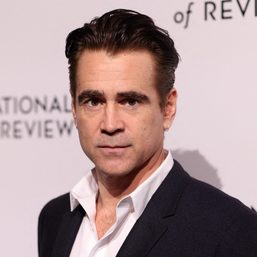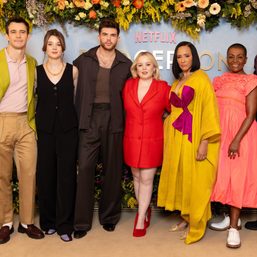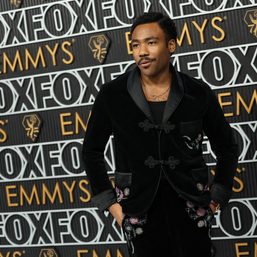SUMMARY
This is AI generated summarization, which may have errors. For context, always refer to the full article.

Sex Education is not your average “coming of age story.” If you haven’t seen the show yet, you can expect classic ’90s to ’00s teen comedy elements mashed up with sassy, straightforward British humor.
Sex Education follows the lives and relationships of the students at Moordale Secondary School as they struggle to understand their sexual natures. It has it all: explorations of love, queerness, parenthood, and hope. The driving forces of these themes are within its diverse set of characters, led by cast members Asa Butterfield, Emma Mackey, Ncuti Gatwa, Connor Swindells, Gillian Anderson, and more.
With three seasons under its name (and one more underway), we’ve seen the characters – a mix of misfits and social royalty – tumble across the spectrum of identity.
Character development is the name of the game in Sex Education. Let’s recap where the characters started and where they are now in their journeys of self-exploration.
Otis Milburn
Otis is the protagonist of Sex Education: an awkward 16-year old treading the line between social outcast and tolerable nobody. After seeing the sexual struggles of his peers, he makes it his mission to provide sex therapy on campus to ease the misinformation hailing Moordale.
For Otis, all of his endeavors are to understand who he really is. Sure, he’s now a sex wizard (and a gifted one at that), but we still see him struggle with the issues he wants to teach others.
Throughout the show, we’re shown Otis’ struggle with the savior complex that comes with his new reputation. After helping Adam, he has a revelation about his counseling skills, and his ability to help people without being a fully realized practitioner or person yet. What happens is that we see more of his flaws and inconsistencies in “practicing what he preaches.” Especially when it comes to love, he goes through different lengths to “solve problems” he isn’t exactly entitled to. (Case in point: Trying to get in the way of Jackson Marchetti courting Maeve.)
When it comes to relationships, Otis is the rockiest of the rocky. In season one, he is enamored by the ambitious and fearless Maeve, though he fails to confess his feelings. He briefly dates new student Ola in season two, but breaks up with her because he still isn’t over Maeve.
However, the true testament to Otis’ lack of clarity in relationships is in season three, after he develops a friends with benefits-to-lovers arrangement with the popular and fashionable Ruby Matthews. The relationship was a delightful shock…
…Until Otis couldn’t reciprocate her love because he still wasn’t over Maeve. Again.
Throughout his relationships, Otis’ general outlook on love greatly shifts. He starts out as a hopeless romantic, and ends up seeing love merely as “a chemical reaction.” This begs the question: how does he really see love and relationships for himself? Though he is skilled in solving people’s problems, he’s still greatly premature in handling love by himself – easily being swayed by the misfortunes around him.
Another important aspect of Otis’ life is his mother, who is a licensed sex therapist. Though Otis is seen as this all-knowing sex god on campus, we’re reminded that he’s still a hormonal 16-year-old at home. He bursts out at his mother when she wants to check up on him or talk. In season three, he avoids her altogether.
However irrational or infuriating his actions are, maybe Otis is just an honest representation of the teenage personality: independent and prideful, even at the expense of others.
Maeve Wiley
Maeve is the secondary main character in Sex Education, but be sure to remember that she isn’t just a love interest. Maeve’s rebellious, “edgy girl” personality made a strong (and frightening) impression on the students at Moordale. Beyond that, she’s witty, strong, and would definitely beat you at a quiz on feminist literature.
Even if Maeve is considered an outcast by her peers, she isn’t one to overlook the needs of her friends. She stands up even for the people who have done her wrong, just like Ruby Matthews, who bullied her.
She wasn’t born into a well-off family. Her mother was a drug addict who couldn’t take care of her. When her mother left, so did her brother, who had earlier taken care of Maeve while selling drugs to make ends meet.
Maeve has been conditioned to believe that she’d always handle things alone. She was also forced to grow up early, to be her own parental figure at a young age. Throughout seasons one and two, we see her rejection of intimacy and love, and everything almost seems like a business prospect to her. But we do see moments of vulnerability, especially when it comes to Otis.
Attachments would be her downfall. When she realized her feelings for Otis, she felt betrayed after seeing him kiss someone else. When her brother came back, she couldn’t handle the pain of seeing him abandon her once more. She puts her emotional walls up again, and deals with the pain alone.
In season three, she encounters a breakthrough. She’s able to accept help and be open about needing it. In the end, it allows her to strengthen her friendship with the lovable Aimee.
We’ve known Maeve as strong and independent since the first episode, but she’s come farther now. She no longer makes decisions to keep herself afloat or to keep her family together. She has spent enough of her time doing that. Now, she is reaping the rewards of her work for herself, getting into a gifted educational program in the US for a better and brighter future.
Eric Effiong
Sex Education loves breaking stereotypes, and it was a breath of fresh air to see Eric Effiong tear the “gay best friend” trope apart.
The cheerful side of Eric isn’t only the one we see onscreen. We see him get angry and disappointed. He doesn’t excuse those who have done him wrong, whether it be best friend Otis or former bully-turned-love interest Adam. (Yes, they became a couple. But we’ll talk about that later.)
Eric Effiong is Otis’ childhood best friend, always full of energy and confidence, even when his onlookers are annoyed by his antics. He is confident in his own skin when it comes to his sexuality and how he wants to present himself (through bright, eccentric fashion), but there is a glimpse into the struggle of marrying these parts of himself with his heritage as a Nigerian-Ghanian.
Eric’s experiences throughout season one and two were love letters to those just like him: the queer kids of color who want to be seen. However, the season three version of Eric somehow eliminates these hard-earned efforts to make him so dynamic. He is passive and judgmental about the trials of his boyfriend, Adam, who is still trying to fully embrace his sexuality. He even cheats on him, and though Eric feels some extent of disappointment over it, he doesn’t regret the decision.
Maybe because the break-up was inevitable. Maybe because Eric has spent so long building his confidence and self-assurance from the ground up. He couldn’t wait for Adam to grow at the same pace as him. He couldn’t wait for anyone to keep him back from shining at his best. He is too much for a star to do so.
In the long haul, his existence is testament to the kind of impact writers can make on audiences when they tell the right stories in the right ways. But on a personal note, I hope he does understand the consequences (and maybe even patterns?) that could emerge in his journey, for better or for worse.
(PSA: Cheating on your significant others is not cool. Take it from Eric. He’s done it twice.)
Adam Groff
After season three, I have one thing to say: #JusticeForAdam.
For the majority of season one, Adam was never at the forefront of the story. He was established as the school bully and an academic misfit, who constantly shut out the berating of his father, problematic headmaster of Moordale. It was only until the end of the first season where we shockingly find out that Adam is bisexual, after a heated moment with Eric.
What ensues after is, once again, a beautiful commentary on the life of a queer youth. In contrast to Eric, Adam was raised to be uptight and loyal to the laws made by his father. He was never given any opportunity to fully explore his sexuality. Beyond hiding his sexuality from his parents, there is the impact of this idea of masculinity being imposed on him, which affects how he handles his emotions.
After recognizing these vulnerable parts of him, we see Adam much happier in season three. He confidently experiments with make-up and strengthens his relationship with his mother through watching Keeping Up With The Kardashians.
The best part about Adam is that he tries. He knows he’s not the brightest student, or the most comfortable in his skin yet, but he wants to do better. This side of him shines in season three as we see his relationship with Eric develop. Viewers can finally see Adam finding himself again, with the help of someone who loves him dearly.
However, the final half of Sex Education 3 saw Adam’s world shift once again after Eric breaks up with him. It was a painful thing to witness given how much development Adam has gone through during their relationship.
Adam Groff should be the poster child of redemption, because he is making his way to becoming the best and most lovable character on Sex Education yet.
Ruby Matthews
Together with Adam, Ruby is another character I was not expecting to love so dearly. She was made out to only be the mean, popular girl. The untouchable queen bee. But just like much of the cast, she had stereotypes to break.
Besides the great commentary about the LGBTQ+ community, the show also does justice to the women of Sex Education.
Ruby is self-aware about her rudeness towards her peers, but when she’s genuine, you know she cares. She is often cold and unwelcoming, especially when it comes to the private parts of her life. Otis is really the only person she shares her personal stories with, and Ruby’s subtle showing of this fondness for him is heartwarming.
When we dive into season three, we are welcomed to the unexpected romance of Otis and Ruby. They’re not supposed to work: the awkward sex therapist and the untouchable queen bee weren’t meant to get together. But it only worked because of how selfless Ruby really is.
For the first time, Ruby allowed Otis to come over to her house. There, we find out that she is her dad’s caretaker in a cramped and shabby home. There wasn’t any mansion or fancy butlers.
Letting Otis see this reality was the greatest showing of her vulnerability. Which is why public outrage ensued after that phone call of Otis rejecting her confession of love.
Those three words would weigh heavily on anyone’s shoulders. We can’t really blame Otis for not being ready to say it yet, because even as viewers there is so much more about Ruby that we want to know. But, the cut is also deep for Ruby, since she 1) finally trusted someone to this degree, and 2) dealt with the inevitable reality of losing him because of her feelings.
Though Otis was willing to stay as friends and see how else their relationship could develop, Ruby didn’t want to rely on hope and wait for something that wasn’t assured. It would be easier to continue on as her original persona.
There’s always more to the popular, mean girl. Ruby just wanted to love and feel loved back.
What Sex Education captures is the dyanmic aspect of youth. Teens are constantly growing and making mistakes, but they are gleaming examples of the best parts of what it means to fall in love and be human. – Rappler.com
Jana Torres is a Rappler intern.
Add a comment
How does this make you feel?






There are no comments yet. Add your comment to start the conversation.